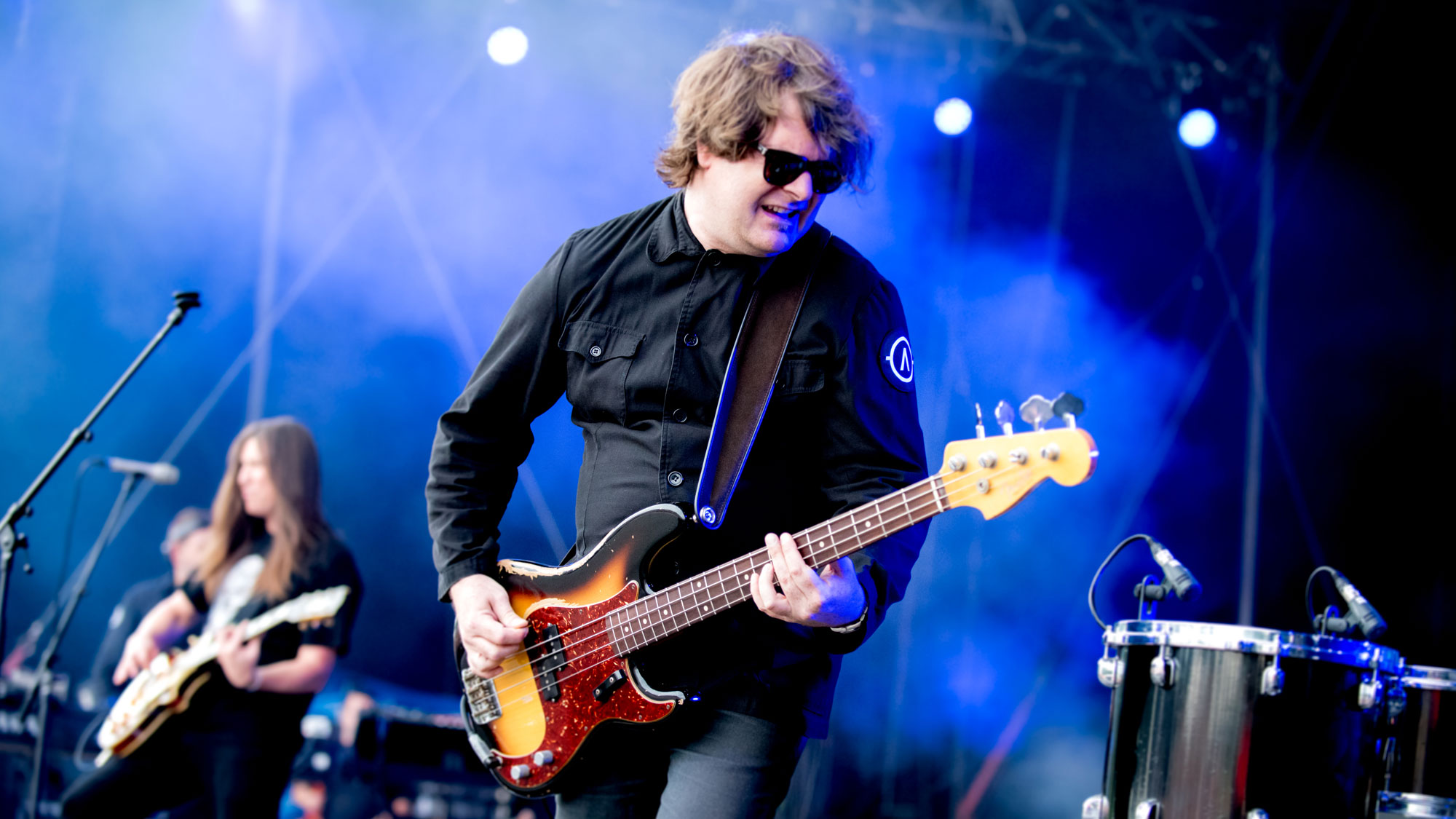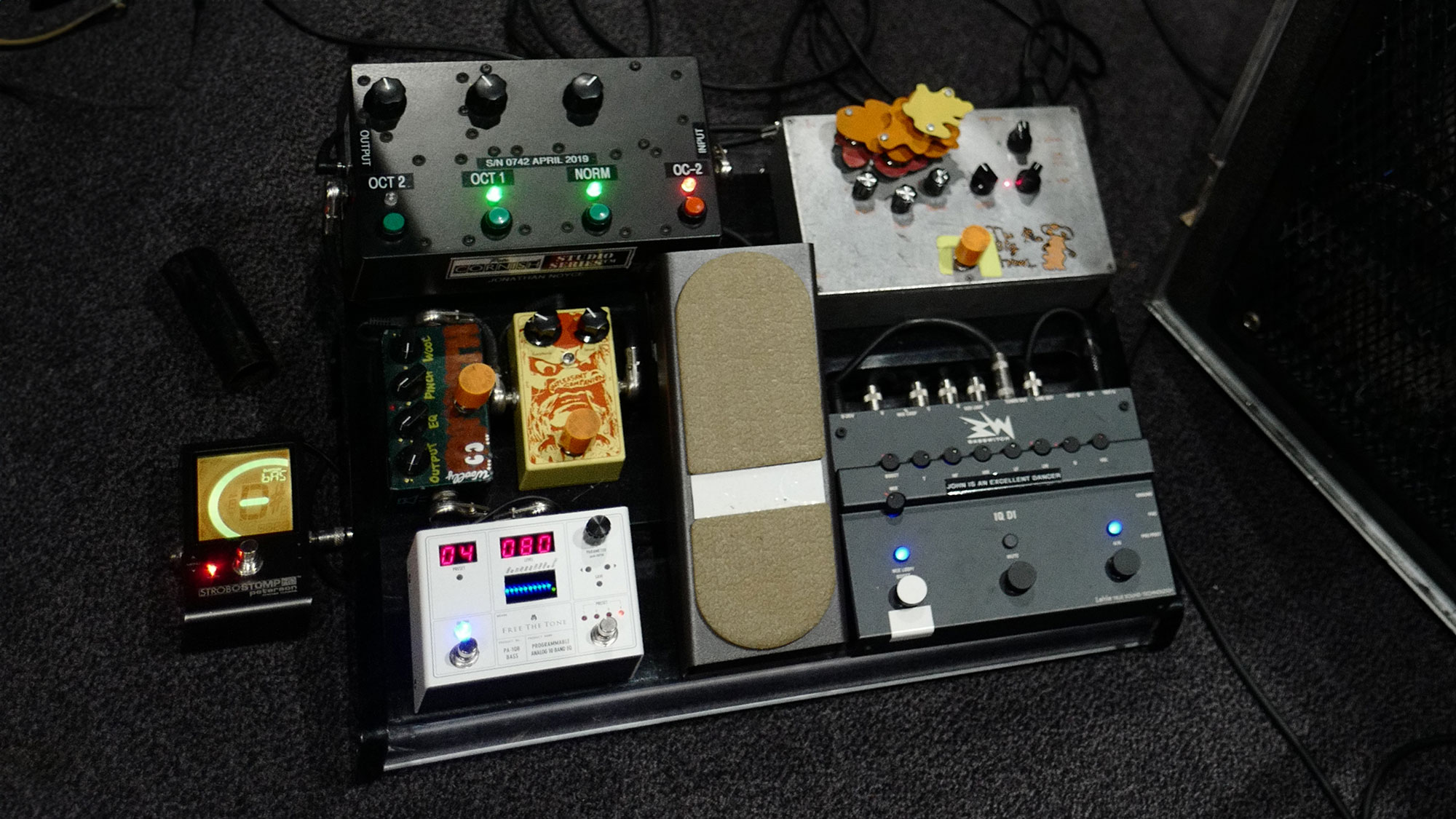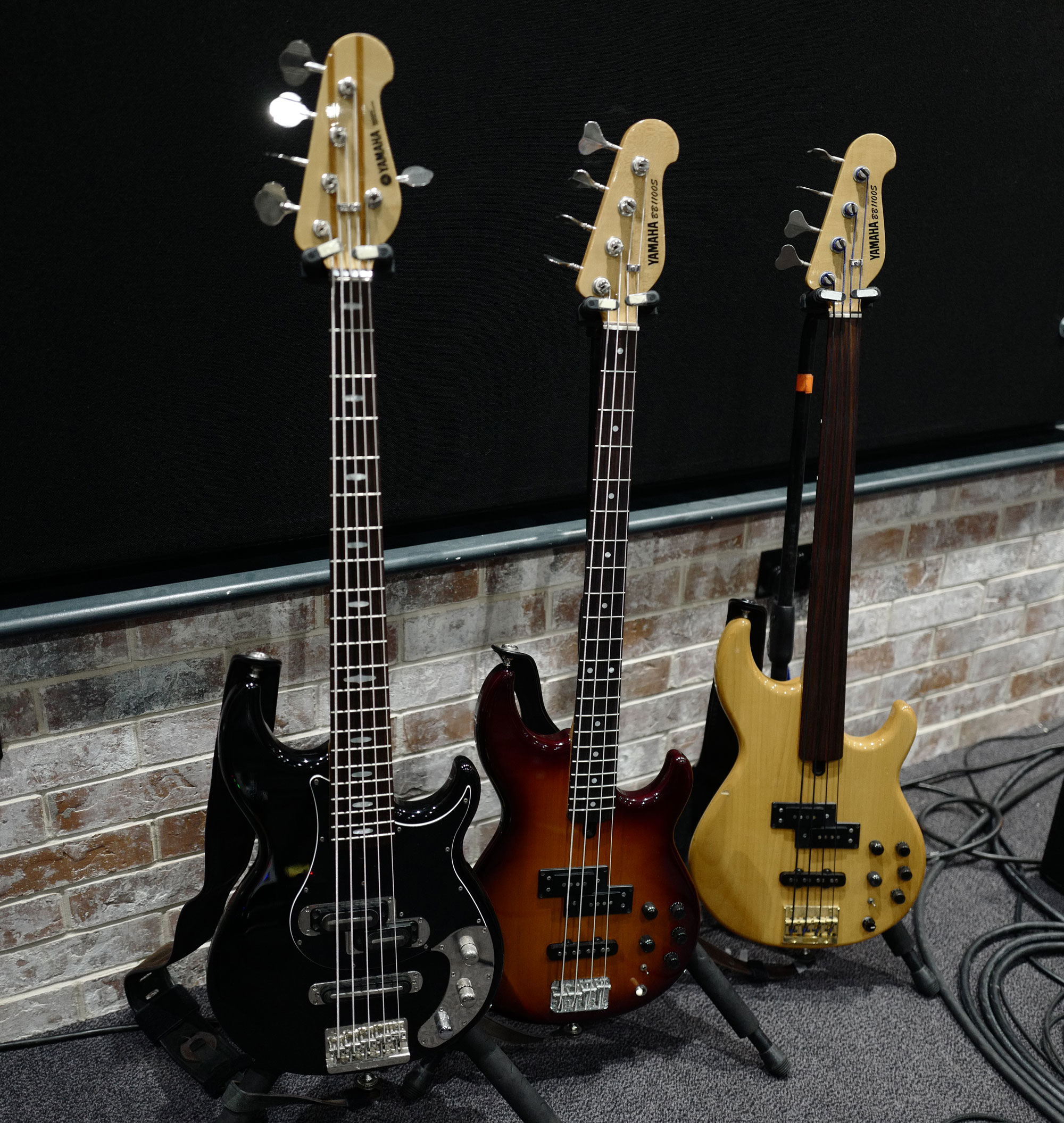
Holding down the low end with Take That, replacing Dave Pegg in Jethro Tull and matching volume with Gary Moore – Warwickshire, UK-born bassist Jonathan Noyce has never been afraid to shift gears. But much like his “stealth bass” approach to playing, he tends to fly under the radar.
“As a bass player you need to interpret the music,” he says, “and that can go different ways. You can make people feel something; you can make people dance – there's really so many ways to approach things.”
Among his achievements are two sessions at Abbey Road Studios – one for an orchestral version of Sgt. Pepper’s Loney Hearts Club Band in 1993, and one for the soundtrack to 2019 Beatles-themed movie Yesterday.
But his time alongside guitar greats Martin Barre and Gary Moore mean the most to him, as he explains: “Gary was a whole lot louder, shall we say! They are equally brilliant. Martin just has a different take on it.”
What got you started on bass guitar?
“It was kind of a gradual thing. I wanted to play music, and my father is a musician. I started out playing drums – but my folks lived in a very old house and it was impossible to do anything loud as the neighbors were close and the walls were made of mud and straw.
“I ended up finding my way to the guitar and eventually started playing bass in the early ‘80s. It was interesting to me because it was rhythmic and funky.”
What did your early bass rig look like?
“My first decent bass was a Yamaha BB1100, which I still have. I had one of those and a fretless version, which I also still use. And I had a Yamaha BB5000, a five-string instrument.”
Once you got going, you made a name for yourself as a session player and recorded with Take That. How did that begin?
“I met a fella called Andrew Livingston, who was DJ Dave Lee's production partner. I began tentatively working with them, making dance music, and I ended up recording with Take That. Working in the studio was interesting, and creatively, I was very much in tune with that.”
How did you end up joining Jethro Tull in 1995?
“I was working on a record for EMI, who had struck a deal with the Royal Academy of Music to use their symphony orchestra. I was part of the rhythm section, and Jethro Tull’s Dee Palmer was on the recording too. I caught Dee's attention and started doing some concerts with him.
“That led me to meet Martin Barre, and from there, things moved quickly. I met Martin in January of ’95, and that coincided with Ian Anderson's Divinities project, which I joined on the road.”
We express ourselves through our music, and the players in Jethro Tull all had very different approaches
You replaced Dave Pegg, who had been in Tull since 1980.
“Dave was considering leaving Jethro Tull and concentrating on the rest of his life, rather than trying to do Jethro Tull and Fairport Convention. And by some great luck and great fortune, I fit right in – which was kind of remarkable considering I was much younger than everybody else.”
What was Ian Anderson’s directive for the bass parts?
“I’ve done very few auditions in my life, and that was one of the first I’d done. Initially it was a question of seeing that I fit as a person. We all have technical gifts – but ultimately, it's really a question of how people fit together.
“Jethro Tull’s music is quite classical and very structured. There’s room for movements within each piece, so I guess I used my best judgment, as everyone does in the band.”
So you were given some freedom?
“It wasn’t a case of taking on board what Dave would have done, which was magnificent. It was a question of taking on board the history of the band and the great musicians that had come before my generation. We express ourselves through our music, and the players in Jethro Tull all had very different approaches.
We’d started rehearsals… Gary went away for a holiday and passed away while he was there. It was really shocking
“Dave had been in the band for a long time, so he loomed very large as a figure. But ultimately, it was a course in the history of rock bass playing. It was a great experience, particularly as I had come from a slightly different background. All the lessons learned with Jethro Tull are still with me now.”
You’ve often referred to your style as “stealth bass”. Can you explain that concept?
“The idea is to be felt and not seen. A lot of that came from when I was in Jethro Tull, where a lot of visual information came from the front. The bass is a powerful instrument; the idea is to come from a musical and technical perspective, where you can make yourself present while not being noticed.

How does the stealth mindset impact your rig?
“It’s morphed into my pedalboard, starting with a Boss Octave pedal [OC-5], which was my way of competing with synthesizers and adding texture with overdrives and distortion. I use a great deal of color within all that, but my Boss Octave and even the good old ProCo Rat pedal are fantastic.”
How did you begin working with Gary Moore?
“Gary was just extraordinary. We must have first met in the ‘90s. We had a mutual friend in Darrin Mooney, who I used to work with and who played drums with Gary. It was only a matter of time before Gary and I spent some time together.
“We started working together around 2003, I guess. Gary wanted to revisit his Celtic rock ideas and go back to his Irish upbringing, and he knew I had a background in folk rock with Jethro Tull. It really was a lot of fun to play with him.”
Was there a secret to playing alongside Gary Moore?
“It had to be very loud – I had to have two amp stacks to compete with Gary, but it was great. There were no computers or click tracks; it was just four people making music. It was one of the greatest experiences of my life.
“He’s very famous for being an extraordinary soloist, but he was also a great rhythm player, knew about music, could play keyboards and a bit of drums; and he was a great singer. He was also a very humble guy.
“We had assembled in early 2011 to work on an album, and we’d started rehearsals. Gary went away for a week on holiday and passed away while he was there. It was really shocking – and unfortunately, everything came to a grinding halt.”
In film sessions you have to be able to do things that are maybe a bit different
What were the main differences between working alongside Martin Barre and Gary Moore?
“Martin’s a very dynamic player, and quite original. He’s a bit of a one-off; his approach is quite different. Gary very much incorporated the blues and the blues players he grew up listening to; but Martin is, I guess, kind of more influenced by classical music.
“With Martin’s parts, you’re trained as an architect; it’s a bit like going to art school. He has a slightly different approach to playing. But Martin and Gary are both brilliant.”

What does your bass rig look like these days?
“I’ve been doing some film sessions, where you have to be able to do things that are maybe a bit different. That’s where my old Fender Precision and Hofner bass become very useful because the music within a film sits very differently than in rock music; it’s more noticeable from a total context.”
Do you have anything new on tap?
“I’ve been working with Mylène Farmer, who is a French superstar, for the last 10 years or so. We have some concerts coming up in France, so I'll be spending September in Paris, preparing and putting on those shows.
“But before then, I’ll be putting together my own project. I’ve always written music, so I’m collating everything together, and I’ll begin to release it. I’ve got plenty to do at the minute!”







